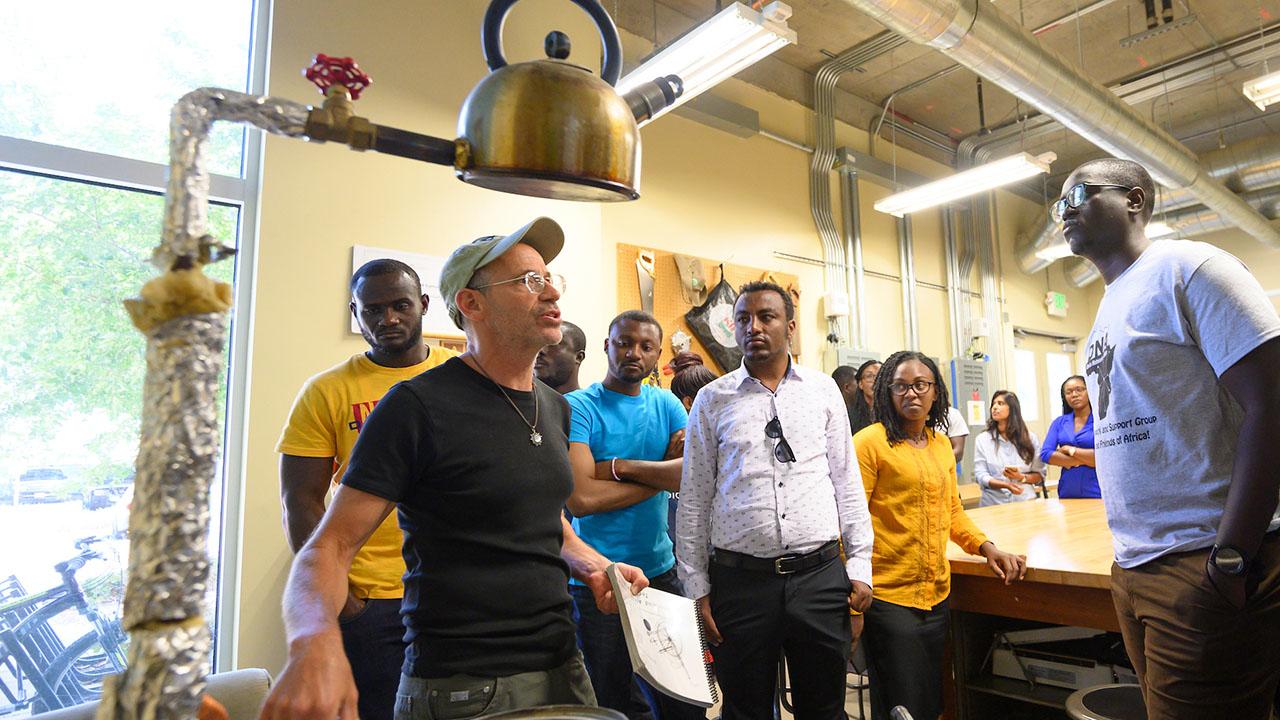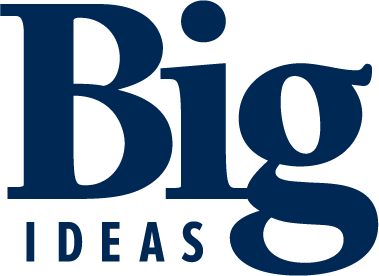
Green Dream Team: Faculty, Staff and Students Model Sustainability Worldwide
By Ashley Han
UC Davis is the ideal model of a green campus, with eco-friendly success stories that colleges and small cities can learn from around the world. Kurt Kornbluth, Ph.D. ’08, an assistant adjunct professor in the Department of Biological and Agricultural Engineering and the champion of the Sustainable Campus, Sustainable Cities Big Idea, has been traveling the world with staff and students to strengthen UC Davis’ partnerships with international institutions.
One of the pillars of Sustainable Campus, Sustainable Cities is to develop decarbonizing solutions, while preparing the next generation of leaders to build global resilience in the face of climate change. Project-based learning and hands-on experience are key to preparing students to be effective leaders in their communities, in their chosen careers, and on the global stage, which is why Kornbluth always invites students to meet with international energy partners.
Q: Why is international experience important to students involved with this Big Idea?
The whole point of Sustainable Campus, Sustainable Cities is hands-on projects. If I go someplace and I don’t have a student with me, it’s a missed opportunity because my personal objective is not to learn; I want students to learn. I want them to take information and experiences and grow from it. Whether that’s researching new, innovative ideas and technologies, finding new career paths, or just broadening their understanding on energy problems.
I took one of my graduate students, Greg Miller, to the Republic of Georgia. He’s an Energy Graduate Group (EGG) student at the UC Davis. The cool thing about our EGG students is that they receive interdisciplinary training required to tackle many different types of energy challenges.
Q: Who are some of your global partners right now?
I’ve been working on educational programs with the Danes for around eight years now. On my most recent trip in the Republic of Georgia, my team and I worked with the Ministry of Education to set up a project-based energy curriculum.
Q: What makes a great partner?
There are two things we look for in a partner. The first is that they are interested in making their campus that uses energy, more sustainable. The second point is to build some sort of educational program within their campus. That’s why we really like working with universities because they have students who want to participate, plus they have energy needs.
Q: What is unique about a team of faculty, student and staff?
The team I bring on these international trips is a comprehensive collaboration. I recently went to Taiwan to visit UC Davis alum Chung-Hsing Gao Ph.D. ’91 because he was interested in implementing metering at his organization’s buildings. When Dr. Gao visited UC Davis, he was impressed by our Campus Energy Education Dashboard (CEED) and the fact that we meter about 400 large campus buildings to track energy use.
On that trip I brought Josh Morejohn, UC Davis energy manager, and Devon Schmidt, an energy graduate group student. The cool thing about bringing Josh and Devon was that we represented the faculty, the staff and the student.
Q: What do you hope to accomplish with these global partnerships?
This Big Idea only makes an impact when we can disseminate the information. Otherwise, we’re just one campus doing amazing work to be more sustainable. We hope to have ongoing and new partnerships where we can share our knowledge around the world. Our end goal would be to see our partners actually implementing energy-saving applications. Eventually, as we share our actionable model with other universities and institutions, cities can adapt sustainable practices to their unique needs.
Our upcoming global energy conference will bring energy managers and partners from all over the world to participate in workshops. We are expecting people from Denmark, Mexico, Spain, Taiwan and several other countries. I’m hopeful that UC Davis’ expertise in energy saving methods will fulfill our vision of a sustainable world.
